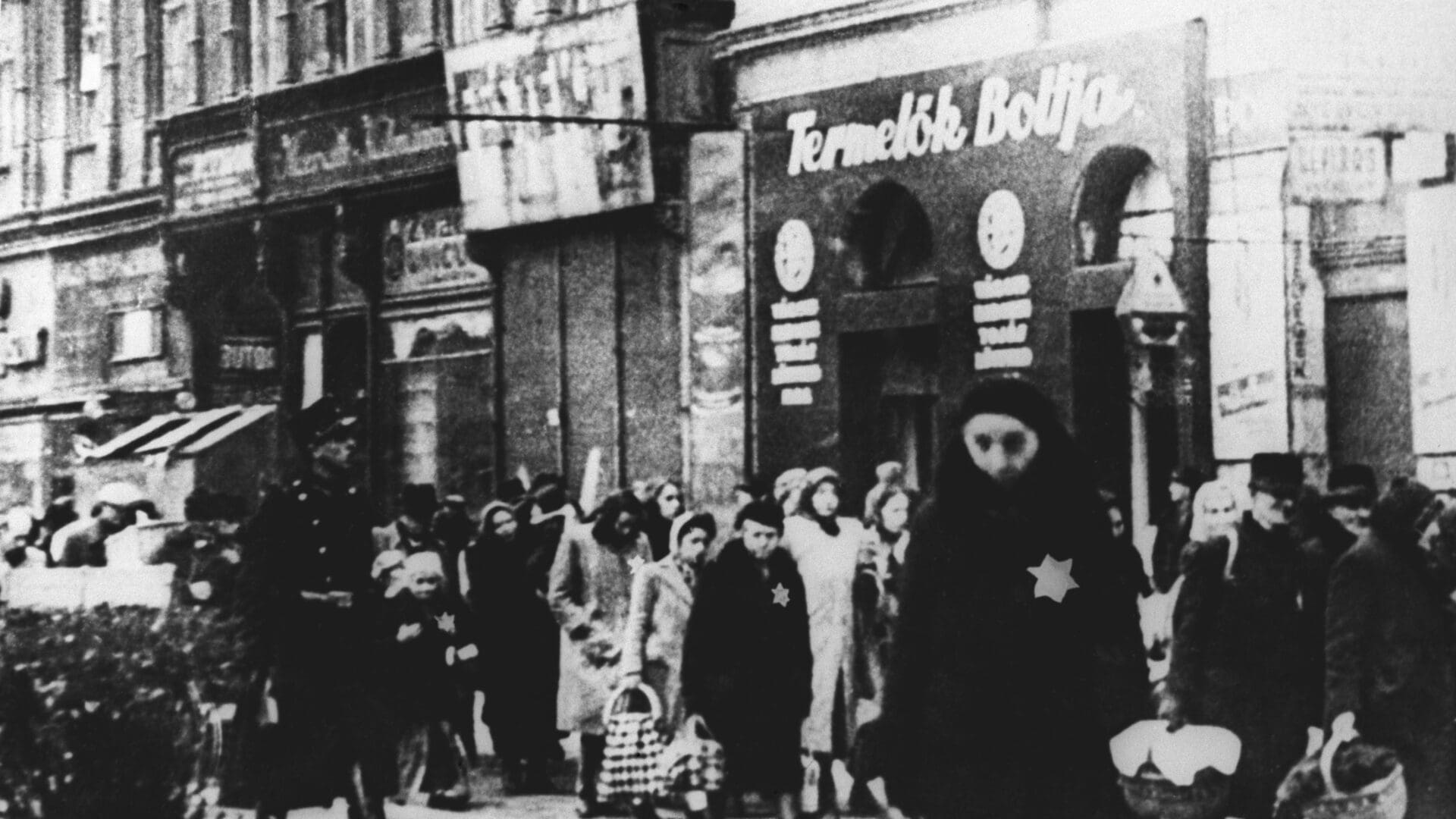Yesterday, 16 April was the Day of Remembrance for the Hungarian Victims of the Holocaust. Below is a piece reflecting on the fate of Hungarian Jewry after the German occupation of Hungary, written by our regular contributor, renowned historian László Bernát Veszprémy.
***
In 2000, the first Orbán government decided that 16 April should be the day when the country pays tribute to the memory of the victims of the Holocaust in Hungary. It was on this day in 1944 that members of the Hungarian administration and the Hungarian police, collaborating with the Nazi occupiers, began to set up the first ghettos and concentration camps.
Hungary was invaded by Nazi Germany on 19 March 1944. The previous government of Miklós Kállay was dissolved on 22 March, giving way to the collaborationist government of Döme Sztójay. Miklós Horthy remained the Regent of Hungary until the Arrow Cross takeover on 15 October. Several people holding important positions were removed from the Hungarian bureaucracy after the occupation, but on the lower levels, the pre-occupation bureaucracy generally stayed in place.
In fact,
the Germans had demanded the deportation of the Hungarian Jewry long before the German occupation of Hungary.
A note in October 1942, in which German Deputy Foreign Minister Martin Luther summarised his negotiations with Sztójay, the Hungarian ambassador in Berlin at the time, openly mentions the German demand and the fact that it had come directly from Adolf Hitler. According to the text, the ‘handling’ of Jews in Hungary is ‘urgent’.
‘I would therefore like you to explain to the Hungarian government the reasons why we are working towards an early and complete solution to the European Jewish question, by the will of the Führer, and to ask the Hungarian government to take the appropriate measures to achieve this goal.’
The text suggests that Germany was far from satisfied with the way the Jewish question was being settled in Europe, while the situation in Hungary was broadly unchanged:
‘The great efforts made by Germany in this area…become illusory if Jews in some parts of Europe still have intellectual and economic power.’
The text then summarised the tasks to be achieved in three points:
‘So, the goal in Hungary is: 1. To remove Jews, without exceptions, from religious and economic life through gradual legislation. 2. Introduce appropriate government regulations to clearly identify Jews so that the population has the opportunity to stay clear. 3. Prepare for deportation and removal to the East.’
Although it is true that the antisemitic Sztójay asked the German Foreign Ministry for an explanation—a move highly unusual in diplomacy—, the idea that Hitler could have been influenced by the Hungarian ambassador can be rejected. As the text puts it: in light of Germany’s murderous Jewish policy applied throughout Europe, the idea that Hungarian Jews could have survived would have seemed ‘illusory’.
Subsequently, in November 1942, Heinrich Himmler stated that the deportation of one million Hungarian Jews—a gross overestimation of their numbers—would be ‘quite satisfactory’. A year before the German occupation, a report by the German foreign affairs ministry clearly mentioned ‘Jews’ as ‘Germany’s enemies in Hungary.’
In April 1943, at a meeting in Klessheim in the presence of Hitler, the German foreign minister told Horthy that ‘the Jews must either be exterminated or transported to concentration camps. There is no other option.’
Finally, on 18 March 1944,
Hitler himself demanded that Horthy ‘resolve the Jewish question’ in Hungary.
This demand was then reiterated by Ernst Kaltenbrunner, head of the Imperial Security Office, and Veesenmayer, and was accepted by the collaborationist Hungarian government at its 22 March meeting.
After the German occupation, the special crew of SS-Obersturmbannführer Adolf Eichmann arrived in the country.
This unit, in direct cooperation with the collaborating Ministry of the Interior, which by this time had been largely purged of anti-Nazi officials, organised the ostracisation, ghettoization, and finally, the deportation of Hungarian Jews.
Between mid-May and early July—within the framework of the largest deportation operation of the Holocaust—approximately 435,000 people were deported to Auschwitz-Birkenau.
The trains were escorted by Hungarian gendarmes to Kassa (Košice in Slovakia today), where SS guards took over the guarding of the trains. Approximately 320,000 people were immediately ordered to the gas chambers of Auschwitz-Birkenau, while 110,000 people were selected for forced labour.
Governor Miklós Horthy broke the chain of deportations on 6 July. On this day, Colonel Ferenc Koszorús, with the First Armoured Division of The Royal Hungarian Army under his command, entered the capital with the aim of ousting the gendarmes from Budapest. It seemed possible to conclude from the developments that the Budapest Jewry was saved—at least for a while.
The series of mass murders and deportations—through the trains sent to the concentration camps in the Western part of the country and the ‘death marches’ ordered in the direction of Austria—continued after the Arrow Cross takeover of 15 October and the resignation of Horthy.
The Red Army of the Soviet Union liberated the Budapest ghetto on 17 January 1945. While this development brought temporary freedom to the imprisoned Jews, it eventually meant terror and oppression for all.
Related articles:








